Protocol poses glass eels import headache for fishermen
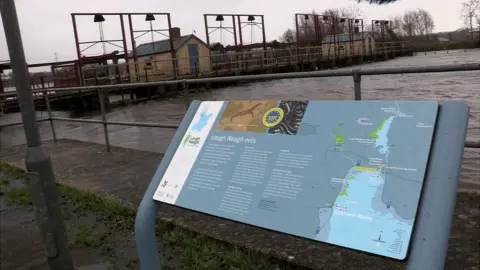 BBC
BBCAfter a year of working with the Northern Ireland Protocol, fishermen on Lough Neagh are still encountering some problems, as the new season begins.
Pat Close, chief executive of the Lough Neagh Fishermen's Co-operative, is reasonably content things have worked - "certainly on the export front".
But the issue of importing glass eels - the juvenile fish - from GB has not been resolved.
"With the protocol and the arrangements in place, by the middle of June many of those issues had been resolved and the remainder of the season essentially went back to what it had been before, with the one exception of the import of glass eels from GB, on which this system has become reliant," he said.
"That remains a problem."
Those imports matter because they keep the lough system sustainable.
Almost 40 years ago, the natural replenishment rate of eels declined sharply and suddenly.
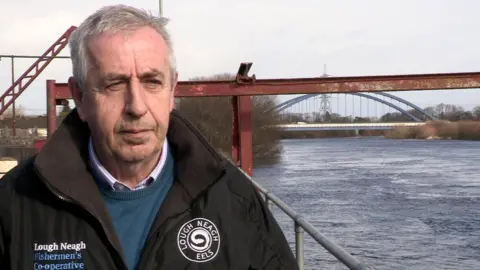
It has never recovered to the same level, so juvenile eels are imported into Lough Neagh from the Severn Estuary in Britain, where numbers are high.
But European eels are classified as endangered, so trade in them is strictly regulated.
They are also transported live, traditionally by aircraft.
'Absolute madness'
Because Northern Ireland follows EU rules under the protocol, live animals can only enter through the seaports of Belfast and Larne.
That means road transport, which the co-operative and its supplier in Gloucester tried with a small consignment at the very end of the season last year, when it was given the go-ahead.
Pat Close said they had no alternative.
"But that turned into a 36-hour round trip, and it's an operation that can be done by aircraft in two to three hours."
That, according to Peter Wood who runs UK Glass Eels, was "absolute madness".
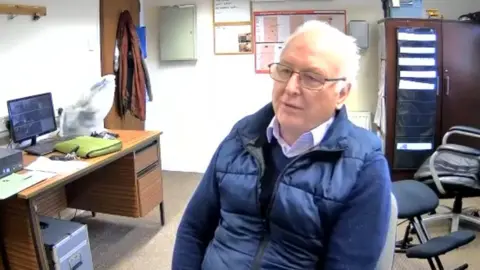
"We thought we'd better do it to try the system, but it's not an economically-viable proposition," he said.
He has already exported to Lough Neagh to restock the lough this year, but from France.
The fishing season started on 15 February.
He said they had only received the documentation from Defra indicating exports from GB to NI would be permitted on 24 February.
"So, what did we have to do? We exported from France," he said.
"The ironic thing is that it's now easier to send the glass eels from France to Northern Ireland than it is from England to Northern Ireland."
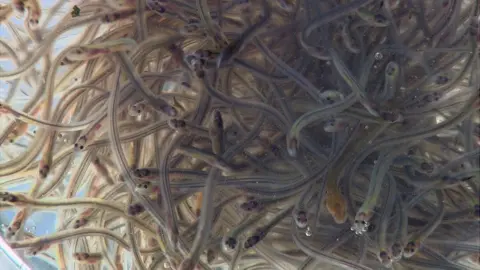
That leaves English fishermen frustrated, and Lough Neagh fishermen like Mr Close with additional concerns, including added cost.
"There are also concerns about the practicalities of introducing those juvenile fish to the lake in January, which is two months earlier than we would normally expect," he said.
"The reason we have to move in January is [the] glass eel season closes in late January in France, whereas in GB it only opens at the end of February and will run on for a few months until towards the end of May.
"And the conditions that the fish would have been being caught in in GB at a point in time are more akin to what we have here.
"So there's always concerns, if we go that bit earlier, is the water too cold, are you going to have increased mortality?"
Mad voting for Brexit?
Nearly six years on from the Brexit vote, which he supported, Mr Wood has had time to reflect.
"There's obviously not enough trade to make it economically worthwhile for the airport authorities to fund this border control post, so the alternative is that the government needs to fund the border control post," he said.
"It's their idea, so they ought to get on and fund it.
"I must have been absolutely mad voting for Brexit.
"But the whole point was to have new opportunities and things should be easy to do, and we'd have access to global markets.
"Well this just hasn't happened."
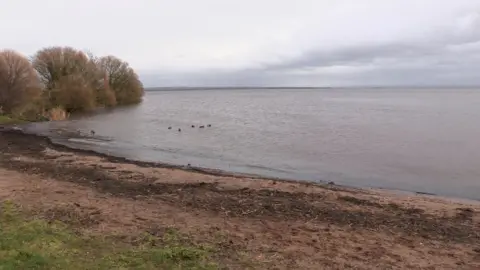
With continuing talks on the future of the protocol, Pat Close and his fellow co-operative members want some security.
"I had hoped that the very real uncertainty and worry that the industry had, had abated, and now it appears to be returning again," he said.
"A lot of sectors, apart [from] our own, have found that they can work with the current situation, and I for one would certainly like to see it retained.
"From a commercial point of view, we'd prefer that nothing would change from where we're at, at this point in time."
Defra said the eel trade was regulated by the Convention on International Trade in Endangered Species of Wild Fauna and Flora (CITES).
"Each application for a CITES permit is considered on its own merits to determine whether the trade would be sustainable and the specimens legally acquired," said the department.
"We don't comment on live applications."
